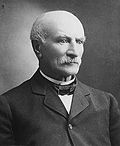Multiple sclerosis more often transmitted by fathers
Wednesday, July 26, 2006

Yesterday, a group of scientists from the U.S. and Canada, headed by O.H. Kantarci from the Mayo Clinic in Rochester, Minnesota, published an article in the professional journal Neurology on the transmission of multiple sclerosis (MS). The result of their studies is that the disease is transmitted to children more often when the father is the one having the disease.
In their studies, 441 children were examined whose fathers or mothers had MS, 45 of which were ill themselves. While only in 27 out of 323 cases, mothers transmitted the disease to their children - which makes 8,36 percent of the cases -, children of fathers with MS inherited it in 18 out of 117 cases - i.e. in 15,38 percent of the cases.

MS is an illness caused by the immune system destroying nerves between the brain and the spinal cord. Later disorders consist of paralysis, speech disorders, impaired visions and problems in motion. Researchers found that MS is not a classical hereditary disease, but is caused by a number of genetic and outer impacts. Also, it is likely that several genes (with complex interactions) have an influence on the development of the disease.
The actual reasons for people to suffer from MS are still unknown. But what is known is that it occurs approximately twice as much in women than in men. And this could be the reason for fathers transmitting the disease to their children more often than mothers. The group thinks that men who are actually ill are carrying more genetic material causing the illness than women with MS which leads to a higher probability for their children to also have MS. This is known as the "Carter effect" in medicine.
Sources
- "Multiple Sklerose: Erkrankte Väter vererben häufiger" — Stern (magazine), July 25, 2006
- "Erkrankte Väter vererben Multiple Sklerose häufiger als Mütter" — wissenschaft.de, July 25, 2005
- "Multiple Sklerose:Väter übertragen MS häufiger als Mütter" — Spiegel Online, July 25, 2006
- "Men transmit MS more often to their children vs women: The Carter effect" — Neurology, July 25, 2006